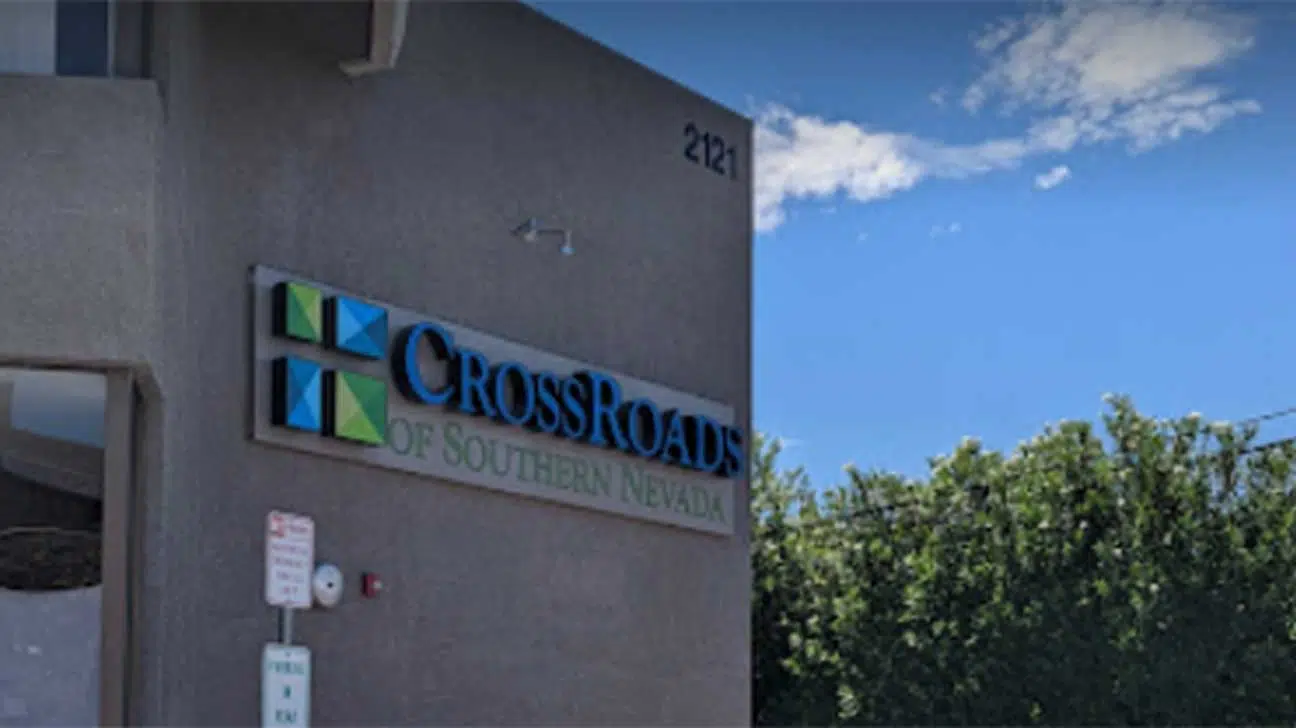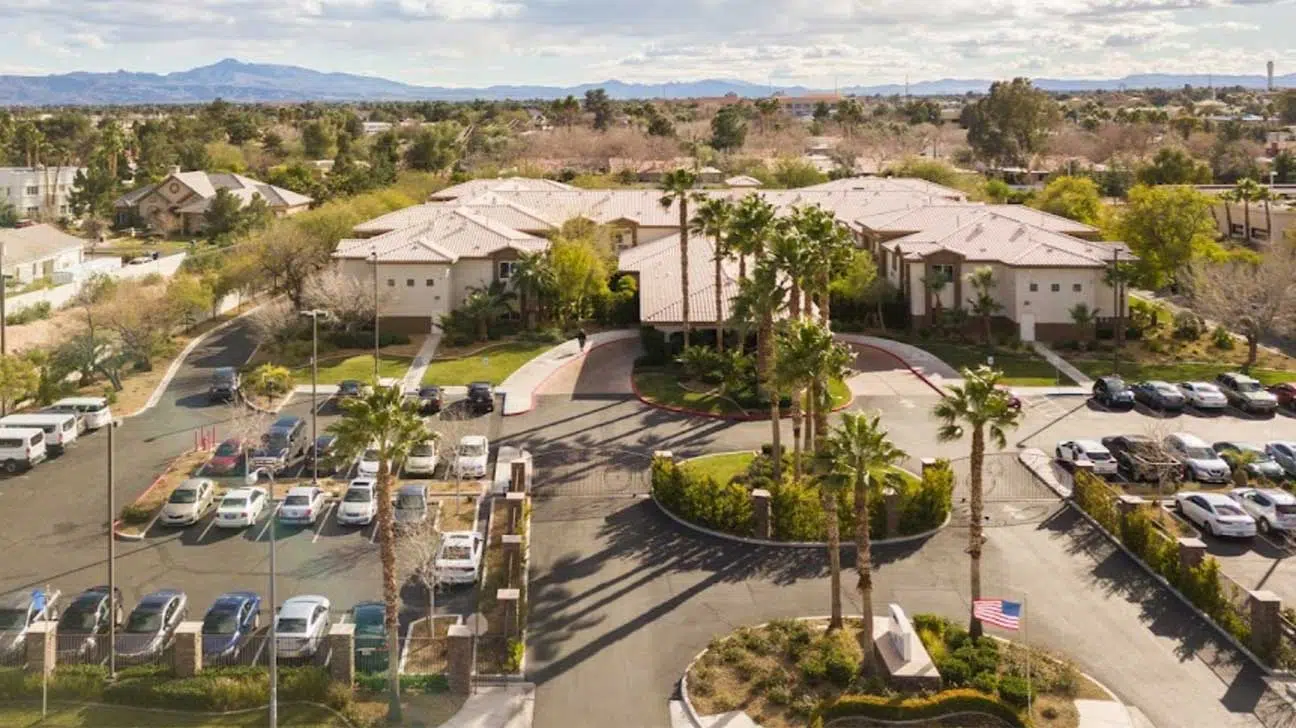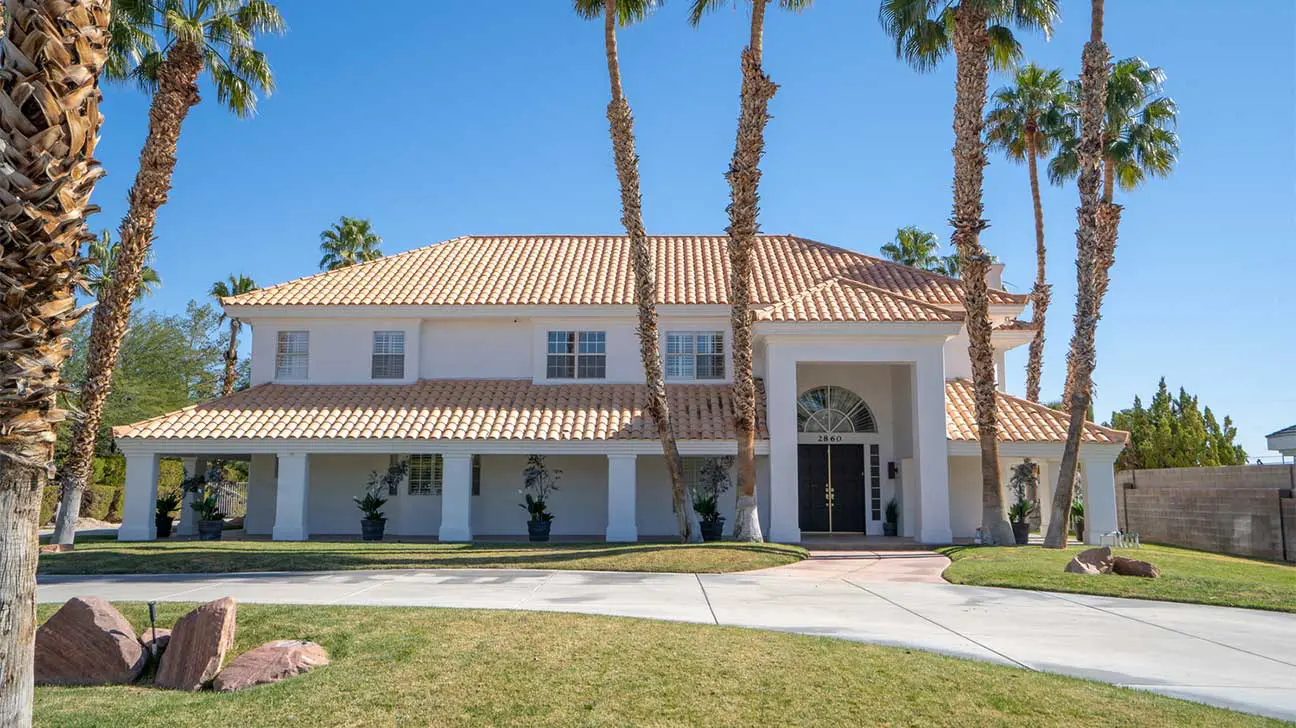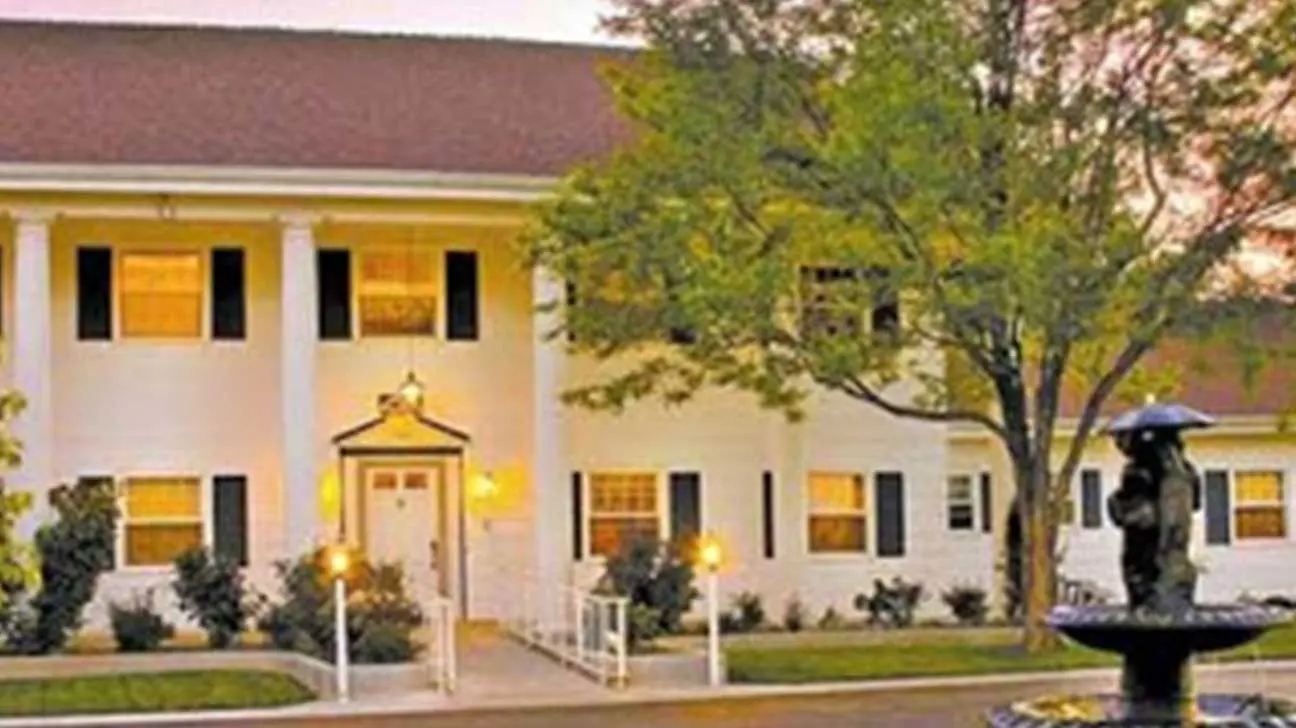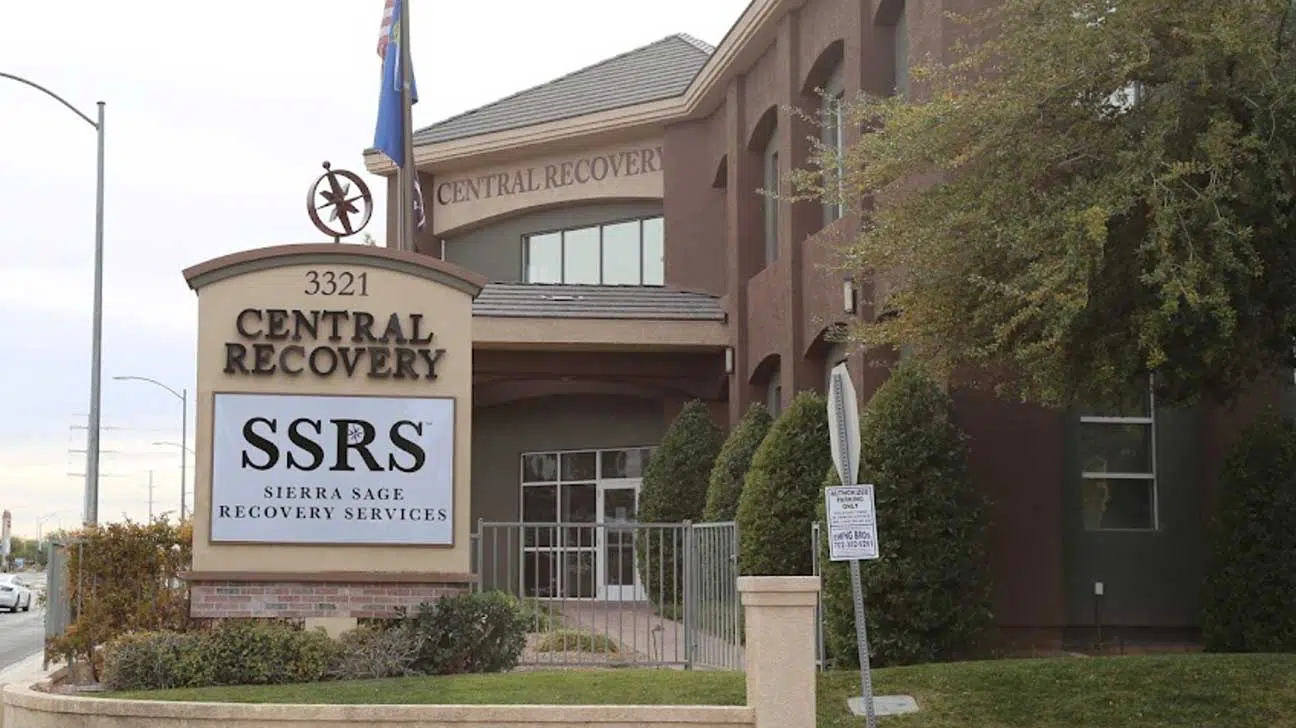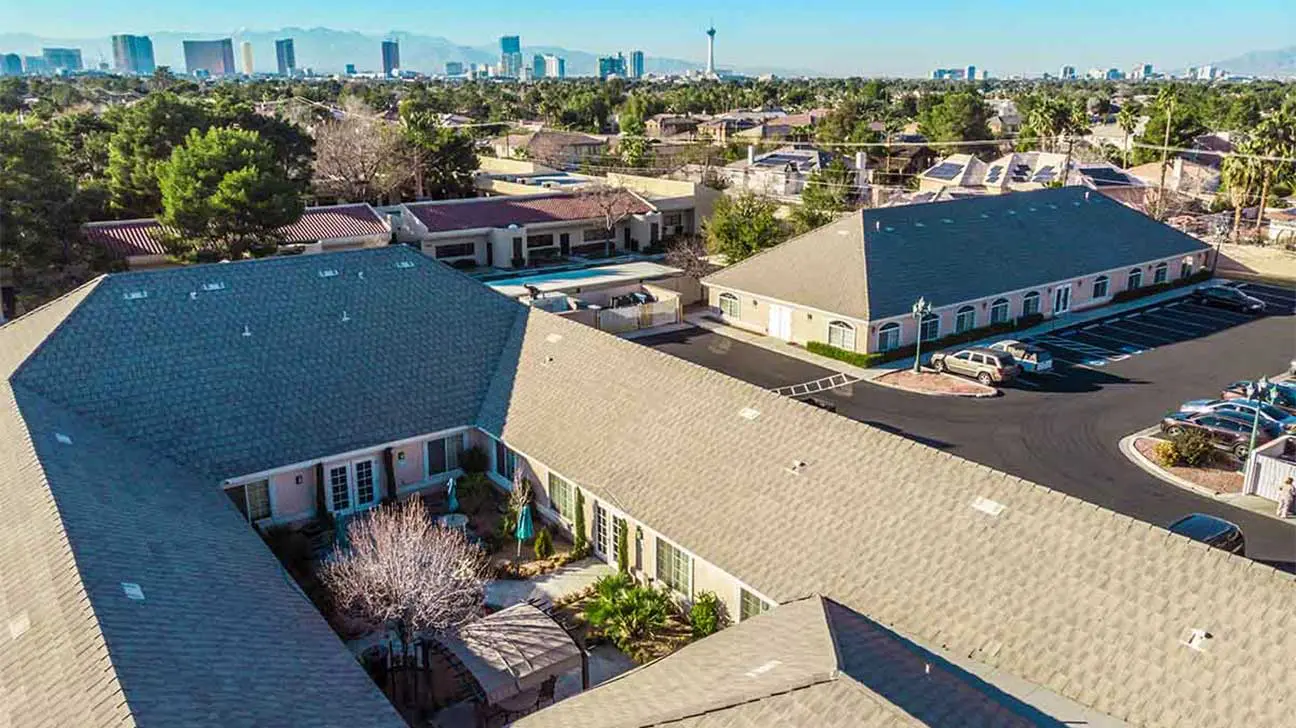
Dual diagnosis treatment programs are available to anyone facing drug addiction and mental health issues. These programs are designed to help patients reach long-term recovery.
Oftentimes, mental disorders can contribute to drug and alcohol addiction. By treating both mental illness and addiction, you can increase your chances of continued sobriety.
If you or a loved one are needing dual diagnosis treatment for a mental health disorder co-occurring with alcohol and drug abuse, there are multiple treatment options available in the state of Nevada.
List Of Dual Diagnosis Treatment Centers In Nevada
Below is a list of dual diagnosis rehab centers in Nevada. Each treatment provider has been included based on accreditation, memberships, licensure, or other quality marks.
1. CrossRoads, Las Vegas, Nevada
CrossRoads is a substance abuse recovery center in Las Vegas, NV, that offers co-occurring disorder treatment to adults with a primary substance abuse diagnosis.
Addiction and mental health services at this outpatient rehab center include:
- medical detox
- continuing care
- transitional housing
- intensive outpatient program (IOP)
- outpatient services
- partial hospitalization program (PHP)
This dual diagnosis treatment center is supported by:
- Joint Commission accreditation
- certification through the Substance Abuse Prevention and Treatment Agency (SAPTA)
- evidence-based treatment methods
- positive client testimonials
Location and contact information:
2121 W. Charleston Blvd.
Las Vegas, NV 89102
(702) 382-7746
2. Desert Hope Treatment Center, Las Vegas, Nevada
Desert Hope Treatment Center provides adult men and women facing mental health conditions and substance abuse near North Las Vegas, NV, with treatment for co-occurring disorders.
Their Dual Diagnosis treatment programs include:
- medical detox
- inpatient rehabilitation
- residential treatment
- outpatient programs
- PHP
- IOP
- sober living
This addiction treatment facility is backed by:
- 4 stars on Google
- Joint Commission accreditation
- Better Business Bureau (BBB) accreditation
Location and contact information:
2465 E. Twain Ave.
Las Vegas, NV 89121
(702) 874-3798
3. Life Change Center, Reno, Nevada
The Life Change Center offers treatment for heroin and opioid addiction in Reno, NV, plus the treatment of co-occurring mental health problems like depression and anxiety.
This Reno, NV, addiction treatment facility offers:
- medication-assisted treatment using methadone,
- buprenorphine, naltrexone, and others for heroin
- abuse or opioid use disorder
- addiction counseling
- therapy and psychiatry for dual diagnosis
- peer recovery support
- aftercare
The Life Change Center is a non-profit organization that uses evidence-based treatments and boasts a 75% success rate.
Location and contact information:
130 Vine St.
Reno, NV 89503
(775) 900-8522
4. The Nestled Recovery Center, Las Vegas, Nevada
The Nestled Recovery Center offers a residential treatment program near Boulder City, NV, focused on treating substance abuse and co-occurring disorders.
They utilize a trauma-informed treatment focus and the holistic model of wellness.
Treatment methods used at The Nestled Recovery include:
- medication-assisted treatment (MAT)
- psychotherapies
- experiential groups
- 12-step support groups
- medical detox
Their treatment facility boasts:
- 5 stars on Google reviews
- LegitScript certification
- BBB accreditation
- Joint Commission accreditation
Location and contact information:
2860 S Bronco St.
Las Vegas, NV 89146
(702) 299-6406
5. New Frontier, Fallon, Nevada
New Frontier is an addiction recovery center in Fallon, NV, that offers three levels of residential treatment. They accept people with a dual diagnosis into their treatment programs.
Their programs include:
- social model detoxification
- clinically managed, high-intensity inpatient treatment
- advanced recovery
This drug and alcohol rehab facility is supported by:
- 4.3 stars on Google reviews
- Joint Commission accreditation
- evidence-based treatment methods
Location and contact information:
1490 Grimes St.
Fallon, NV 89406
(775) 423-1412
6. Sierra Sage Recovery Services, Las Vegas, Nevada
Sierra Sage Recovery Services has specialized dual diagnosis programs to treat adults with substance use disorder and mental illness.
Mental health and addiction treatment programs near Henderson, NV, include:
- PHP
- IOP
- outpatient treatment
- dual diagnosis treatment
This recovery center also offers cognitive behavioral therapy, dialectical behavior therapy, and motivational enhancement therapy, among other modalities.
Sierra Sage Recovery Services is backed by:
- accredited by the Commission on Accreditation of Rehabilitation Facilities (CARF)
- positive client testimonials
- evidence-based treatment methods
Location and contact information:
3321 N. Buffalo Dr.
Ste. 125
Las Vegas, NV 89129
(833) 922-2884
7. Vogue Recovery Center, Las Vegas, Nevada
Vogue Recovery Center provides gender-specific addiction treatment to patients with co-occurring disorders. They also have a program focused on treating veterans.
Treatment services at this addiction rehab center include:
- outpatient treatment
- IOP
- PHP
- inpatient treatment
- residential treatment
- medical detox
- MAT
This drug and alcohol addiction treatment center boasts:
- 4.2 stars on Google reviews
- LegitScript certification
- BBB accreditation
- Joint Commission accreditation
Location and contact information:
4011 McLeod Dr.
Las Vegas, NV 89121
(725) 500-5919
Types Of Treatment For Co-Occurring Disorders At Rehab Centers In Nevada
Most dual diagnosis alcohol and drug rehab centers rely on evidence-based therapeutic modalities to meet individual needs.
This can include cognitive behavioral therapy, motivational interviewing, dialectical behavior therapy, and others. These modalities have the advantage of being applicable for mental healthcare and alcohol and drug treatment.
A Nevada rehab center for co-occurring disorders, may also use medication to treat mental health and substance use disorders. For mental health, this may include antidepressants and anti-anxiety medication.
For addictions such as opioid use disorders or alcohol abuse, this may include medication-assisted treatment using methadone, buprenorphine, or other medications.
How Common Is Dual Diagnosis In Nevada?
In 2019, a report to the Nevada Governor indicated several trends in the areas of mental health and substance abuse.
In the prevalence of mental illness (including substance abuse), Nevada ranks 44 out of 51 states (including the District of Columbia).
Youth in the nation who experienced severe depression and co-occurring disorders were at 9% while in Nevada, they were at 13%.
How To Choose A Dual Diagnosis Program In Nevada
Finding a treatment center that will treat mental disorders alongside addiction can be a daunting task.
You can make it simpler by keeping the following features of high-quality treatment facilities in mind during your search.
Specialized Dual Diagnosis Treatment
Having a specialized dual diagnosis treatment plan or program available is one of the most important parts of a high-quality dual diagnosis treatment center.
It is key to have a treatment team that is experienced and familiar with treating co-occurring disorders.
Use Of Behavioral Therapies
Behavioral therapy is frequently used in substance abuse treatment. Regarding dual diagnosis treatment, at least one or more types of behavioral therapy should be utilized.
Many co-occurring disorder programs utilize:
- cognitive behavioral therapy (CBT)
- dialectical behavioral therapy (DBT)
- trauma-informed therapy
- dual diagnosis support groups
Nevada Dual Diagnosis Treatment FAQs
To know more about addiction services and dual diagnosis treatment in Nevada, please review the frequently asked questions below.
Can Dual Diagnosis Treatment Be Found At Any Addiction Treatment Facility In Nevada?
While most addiction treatment centers in Nevada offer some form of behavioral health services, not all drug and alcohol rehab centers offer dual diagnosis treatment.
Be sure to look for a recovery center with specialized services or programs for dual diagnosis patients.
What Mental Conditions Can Be Treated At Nevada Dual Diagnosis Treatment Centers?
Each alcohol and drug rehab facility will treat different mental conditions.
Many of the dual diagnosis drug and alcohol rehab programs in Nevada treat:
- depression and substance abuse
- bipolar disorder
- schizophrenia and addiction
eating disorders - post-traumatic stress disorder (PTSD) and opioid use disorder
How Long Is Dual Diagnosis Treatment?
The length of your treatment will depend on your recovery goals, your level of care, and how severe your addiction is.
Common residential or inpatient treatment lengths include 30, 60, and 90 days. A 30-day program is usually considered short-term treatment while a 90-day program would be considered a long-term recovery program in Nevada.
However, some addiction treatment centers offer programs that can range from a few weeks to years long.
Will A Dual Diagnosis Rehab Center In Nevada Accept Health Insurance?
That depends on the rehab center, but in general, yes, it will. Many rehab facilities work with national health insurance companies to find coverage for your treatment plan.
Some recovery centers will work with government-sponsored health insurance programs as well. These may include Medicare, military insurance, and Nevada Medicaid for substance abuse treatment.
Find Dual Diagnosis Treatment Today
You can begin your recovery journey from your addiction and mental health conditions.
If you or a loved one are facing a dual diagnosis, call AddictionResource.net to learn more about your treatment options.
Updated on April 6, 2023
Addiction Resource aims to provide only the most current, accurate information in regards to addiction and addiction treatment, which means we only reference the most credible sources available.
These include peer-reviewed journals, government entities and academic institutions, and leaders in addiction healthcare and advocacy. Learn more about how we safeguard our content by viewing our editorial policy.
- FindTreatment.gov — Treatment Locator
https://findtreatment.gov/results - National Institute of Mental Health
https://www.nimh.nih.gov/health/topics/substance-use-and-mental-health - National Library of Medicine: MedlinePlus
https://medlineplus.gov/dualdiagnosis.html#:~:text=Someone%20with%20a%20dual%20diagnosis,you%20emotional%20and%20social%20support. - Substance Abuse and Mental Health Services Administration
https://www.samhsa.gov/find-help/disorders

